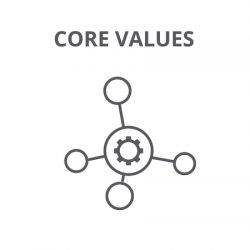March 5, 2018
Automation will lead to greater inequality rather than job losses
 The total level of wages associated with jobs that have the technical potential to be automated in the UK is £290 billion per year, which represents 33 percent of all wages and earnings from labour in the economy, according to a new report published by IPPR for the IPPR Commission on Economic Justice. The report further claims that low-wage jobs have more potential to be automated than high-wage jobs and so it’s not just automation’s impact on the number of jobs that need to be considered but the impact on inequality. If automation leads to lower average wages or working hours, or loss of jobs in aggregate, a significant amount of national income could be transferred from wages to profits. And while increased automation of activities will replace some workers and labour earnings, employment and wages will rise in other areas of the labour market due to higher output and productivity, offsetting some of the original £290 billion lost but increasing pay inequality.
The total level of wages associated with jobs that have the technical potential to be automated in the UK is £290 billion per year, which represents 33 percent of all wages and earnings from labour in the economy, according to a new report published by IPPR for the IPPR Commission on Economic Justice. The report further claims that low-wage jobs have more potential to be automated than high-wage jobs and so it’s not just automation’s impact on the number of jobs that need to be considered but the impact on inequality. If automation leads to lower average wages or working hours, or loss of jobs in aggregate, a significant amount of national income could be transferred from wages to profits. And while increased automation of activities will replace some workers and labour earnings, employment and wages will rise in other areas of the labour market due to higher output and productivity, offsetting some of the original £290 billion lost but increasing pay inequality.



















 In a workplace dominated by insecurity, gig work and intelligent machines we need to improve our understanding of their potential impact on health, safety and wellbeing claims a new report.
In a workplace dominated by insecurity, gig work and intelligent machines we need to improve our understanding of their potential impact on health, safety and wellbeing claims a new report. 
 A new report a new report by the Centre for Ageing Better has called for government and employers to support older workers to stay in work for longer, help those who have fallen out of work involuntarily to return and to create workplaces that work for all, irrespective of age. The report claims that ensuring older workers are able to stay in good quality employment is essential to the future of the UK economy and will relieve pressure on public finances. It makes some key recommendations that include access to flexible working hours and workplace adaptations to help people manage pressures such as caring responsibilities and health conditions, which become more prevalent with age. It also calls for equality of opportunities in the workplace as older workers in the UK experience age discrimination in recruitment and progression. They are less likely to be offered opportunities for development – across the whole of the OECD only Turkey and Slovenia have lower levels of on-the-job training for older workers than the UK. Research shows they are also the most likely to be stuck on low pay and feel most insecure about their jobs.
A new report a new report by the Centre for Ageing Better has called for government and employers to support older workers to stay in work for longer, help those who have fallen out of work involuntarily to return and to create workplaces that work for all, irrespective of age. The report claims that ensuring older workers are able to stay in good quality employment is essential to the future of the UK economy and will relieve pressure on public finances. It makes some key recommendations that include access to flexible working hours and workplace adaptations to help people manage pressures such as caring responsibilities and health conditions, which become more prevalent with age. It also calls for equality of opportunities in the workplace as older workers in the UK experience age discrimination in recruitment and progression. They are less likely to be offered opportunities for development – across the whole of the OECD only Turkey and Slovenia have lower levels of on-the-job training for older workers than the UK. Research shows they are also the most likely to be stuck on low pay and feel most insecure about their jobs.


 Demand for labour is likely to remain relatively strong in the near-term which is one of the main reasons why employers support a national approach to tackling the UK’s skill and labour shortages post-Brexit, in comparison with a regional or sectoral one. According to the latest quarterly Labour Market Outlook from the CIPD and The Adecco Group the preference for a national labour or skills shortage occupation scheme reflects the main reason given by organisations for employing EU nationals, which is that they have difficulty finding local applicants to fill lower skilled roles, as cited by 18 percent of employers. The national survey of more than 2,000 employers found that the relative majority of employers (41 percent) would prefer a UK-wide immigration system that is based on national labour or skill shortage occupations in the likely event of migration restrictions once the UK leaves the European Union. In contrast, around one in ten (13 percent) favour a sector-based policy and just 5 percent would back a regional policy.
Demand for labour is likely to remain relatively strong in the near-term which is one of the main reasons why employers support a national approach to tackling the UK’s skill and labour shortages post-Brexit, in comparison with a regional or sectoral one. According to the latest quarterly Labour Market Outlook from the CIPD and The Adecco Group the preference for a national labour or skills shortage occupation scheme reflects the main reason given by organisations for employing EU nationals, which is that they have difficulty finding local applicants to fill lower skilled roles, as cited by 18 percent of employers. The national survey of more than 2,000 employers found that the relative majority of employers (41 percent) would prefer a UK-wide immigration system that is based on national labour or skill shortage occupations in the likely event of migration restrictions once the UK leaves the European Union. In contrast, around one in ten (13 percent) favour a sector-based policy and just 5 percent would back a regional policy.










March 5, 2018
About time we simply accepted that coworking and flexible working are the new normal
by Sarah King • Comment, Coworking, Flexible working, Workplace design
(more…)